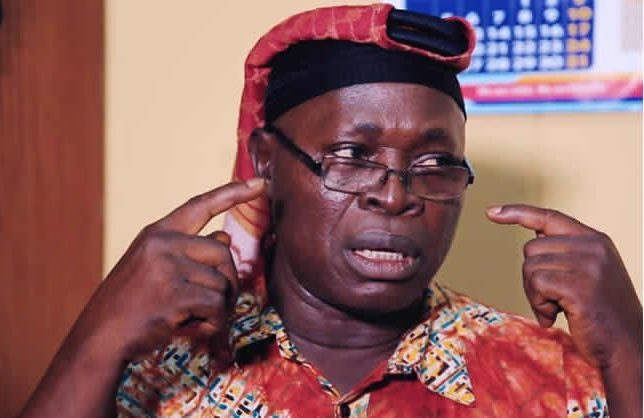By Chimezie Godfrey
The International Centre for Investigative Reporting (ICIR), has called the government to provide a database for missing persons, especially in the northeastern part of the country, where thousands of people have reportedly been declared missing.
Stating this on Wednesday in Abuja during the roundtable meeting on Justice for Missing Persons in the North-East, the Executive Director, Dayo Aiyetan, stressed the need for government to develop a database for information on missing persons and provide psychological, legal and other supports for the families of these persons, particularly the women and the children.
The meeting was organised by ICIR in collaboration with Ford Foundation.
“We want government to do something, what we want government to do is provide information, that is, develop a database of information that these women can work with.
“And then start to think of providing psychological support for some of them, and then other people who should provide legal support and other kinds of supports for the family members, the women and the children will able to do their bit,’
Hamsatu Allamin, the Executive Director, Allamin Foundation for Persons and Development, Maiduguri, also decried that Nigeria do not have a national database that could account for every Nigerians.
She complained about poor government response to the plight of the people of the North-East, especially the military who she allegedly accused of indiscriminate arrests due to their inability to distinguish between none members and members of Boko-Haram.
“If you are a male, particularly a muslim and then kanuri in that part of the country, automatically you are branded a boko-haram. Sometimes you don’t even blame the military because all they see are youths coming out of the communities attacking them and coming back into the communities and disappearing.
“So, at a point they started indiscriminate burning of all our houses and arresting our youths indiscriminately. So, I said I have to know why these boys are doing what they are doing and try if possible to stop it, that was how I came into it,” she said.
Allamin pointed out the people who are mostly affected are women whose sons and loved ones have been arrested by the Nigerian military and some forcefully adopted and recruited by boko-haram.
She revealed that people who are victims of these atrocities are in hundreds of thousands and unaccounted for, and that nobody is saying anything about them.
She therefore called on the government to be alive to its primary responsibility of ensuring the safety and security of everyone, “I want the government to make the security agencies to declare how many people they have arrested since this conflict started and then detain them in their military detention facilities, and how many have died in those detention facilities,” she said.
Senator Ali Ndume, the chairman, senate committee on Defence said the number of persons missing in the northeast cannot be accurately quantified due to lack of database, and because of the high level of poverty and illiteracy in the region.
Ndume called for justice for the missing persons, adding that justice is to get the missing persons back to their communities. He also urged Nigerians to hold the government accountable for the missing persons in the northeast.
The roundtable after an extensive panel session identified some challenges regarding the accountability of missing persons in the northeast which includes, the unending problem of forced disappearances, secret and unlawful detentions, inhuman torture, sexual assault of female detainees, forced marriages, and the complicity of security agencies, especially officers of the Nigerian Army deployed to the region, in these events.
They also identified lackadaisical attitude and lack of political will on the part of government both at the state and federal level, and also both at the executive and legislative level and lack of a comprehensive database containing the identities of citizens and residents of the country, among others.
In the light of the above, the meeting came up with recommendations which includes that there should be a database with the government covering people who are being incarcerated, to match against allegations of persons going missing or being extrajudicially killed, and the rules of warfare, which require that the government must account for the missing and the dead, should be upheld, among others.
The roundtable brought together human rights activists, media practitioners, participants from non-governmental organizations, government security agencies, as well as representatives of government (including the National Assembly, Ministries, Departments, and Agencies) that deliberated on what can be done to improve the conditions of residents of violence-stricken regions in the country, particularly the North-east, who have gone missing or have been abducted and their loved ones.



